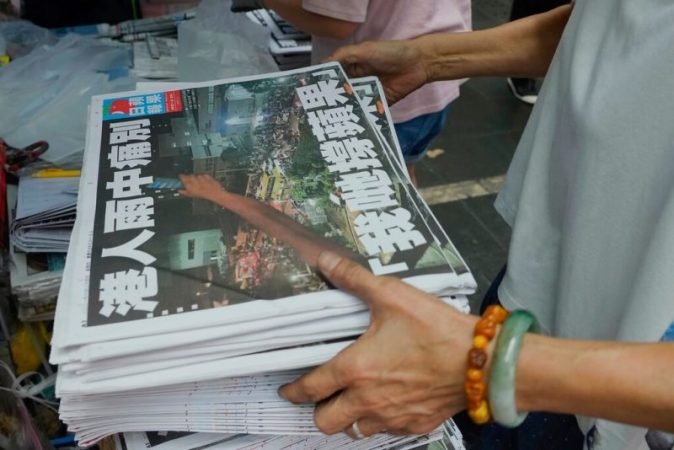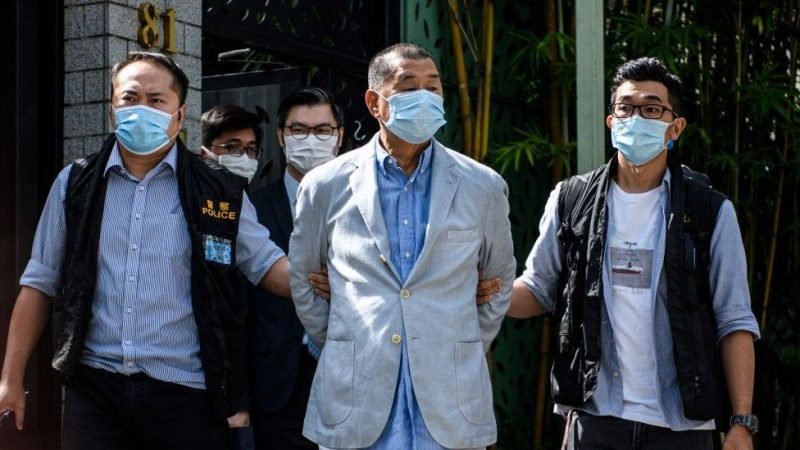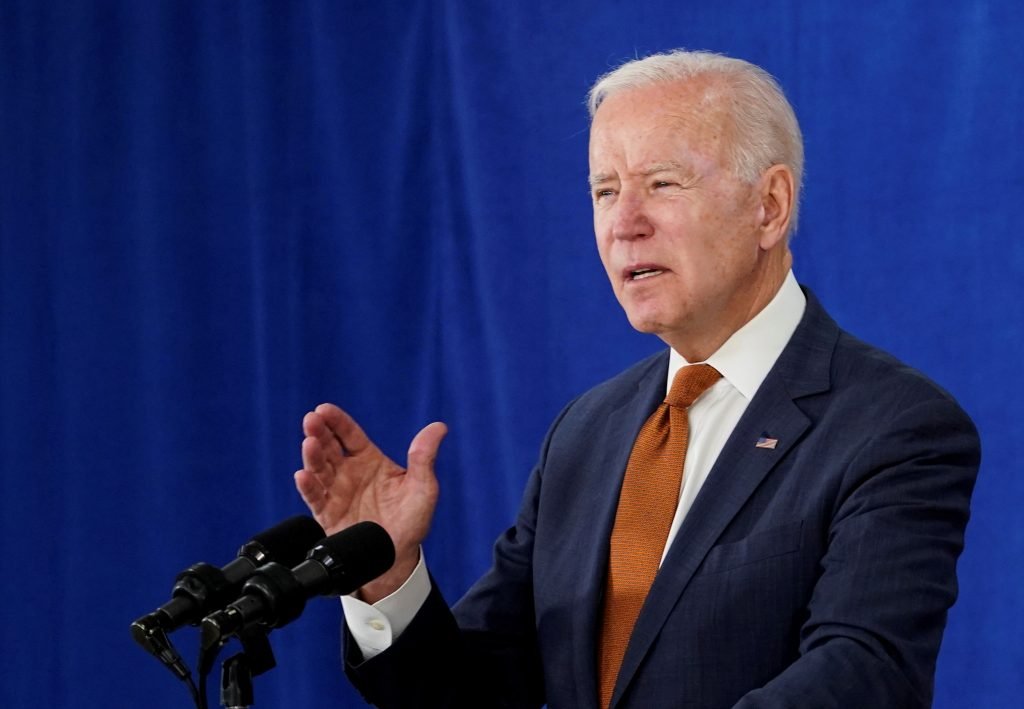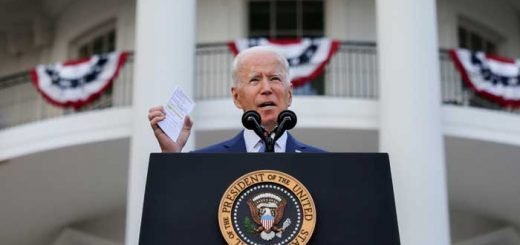Senators call on Biden to impose sanctions over Hong Kong paper closure

Two leading U.S. senators have called on President Joe Biden to use powers under a bill they authored to impose sanctions on those responsible for forcing the closure of Hong Kong’s Apple Daily newspaper, suggesting foreign banks were among those implicated.
The letter from Senator Pat Toomey, Republican ranking member of the Senate Banking Committee, and Democratic Senator Chris Van Hollen, a committee member, referred to a Reuters report last month that Hong Kong Security Secretary John Lee sent letters to Apple Daily owner Jimmy Lai and branches of HSBC and Citibank threatening up to seven years’ jail for any dealings with the billionaire’s accounts in the city.
Lee had ordered the branches to freeze Lai’s accounts, “which they appear to have done,” said a text of the senators’ letter made available to Reuters.
It said some 500 police officers earlier this week raided the Apple Daily’s offices and arrested its executives and Hong Kong’s Security Bureau then ordered Apple Daily’s banks to freeze the newspaper’s assets, “directly resulting in its closure.”
The senators said their Hong Kong Autonomy Act passed last year required the U.S. secretary of state to identify to congress any foreign person, including foreign businesses “materially contributing” to the “inability of the people of Hong Kong to enjoy the freedom of assembly, speech, press, or independent rule of law.”
“It seems very likely that the breathtaking crackdown on Jimmy Lai and Apple Daily involves numerous foreign persons to whom Section 5 of the Hong Kong Autonomy Act applies,” the letter said.

“We urge your administration to comprehensively enforce the Hong Kong Autonomy Act in the immediate wake of the injustice imposed upon Jimmy Lai and the forced closure of Apple Daily,” it said.
The senators’ legislation requires mandatory sanctions on persons and entities that directly undermine Hong Kong’s autonomy and secondary sanctions on banks that do business with those entities and persons.
In their letter, the senators added that it was their understanding that the orders to the foreign banks were issued in an extrajudicial manner, by a single official outside of the court system, and without any criminal charges or subpoenas.
“These orders solidify the impression of many that the rule of law is no more in Hong Kong,” they said.
Last month, a Citi spokesperson said in response to the Reuters story that the bank was required to comply with all laws and regulations in the countries in which it operates. HSBC declined to comment, but CEO Noel Quinn said previously that the bank has to comply with police requests in any country in the world.
On Thursday, Biden called the closure of the Apple Daily a “sad day for media freedom” and said it signaled “intensifying repression” by China, while vowing to maintain support for the people of the Chinese-ruled territory.

He made no mention of any plans to impose further sanctions over the crackdown.
The White House and State Department did not immediately respond to requests for comment on the senators’ letter.
A State Department report to Congress issued under the previous Trump administration in October put financial institutions on notice that they could be subject to secondary sanctions, including restrictions on U.S. loans, foreign exchange, property transactions, exports and transfers, in addition to measures against their executives.
In March, the Biden administration identified 24 Chinese officials previously sanctioned by the Trump administration as responsible for reducing Hong Kong’s high degree of autonomy.
It said foreign financial institutions that knowingly conduct significant transactions with them were now subject to sanctions.
However, in its latest report to Congress required under the bill in May, the Treasury Department did not identify any foreign financial institutions doing business with those persons.
Reporting by David Brunnstrom in Washington; Additional reporting by Alun John in Hong Kong; Editing by Matthew Lewis, David Gregorio and Raju Gopalakrishnan


















